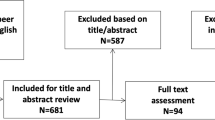Abstract
In recent years we have observed the rise of Experience and Application Research centers (EARC). These EARCs simulate realistic environments and are used for the empirical evaluation of interactive systems in a controlled setting. Such laboratory environments are intended to facilitate data collection without influencing the data itself. Accumulated experience in the use of EARCs has raised concerns that test participants could be impressed by the environments and have raised expectations for advanced systems they expect to encounter; this brings about the danger of systematic bias in subjective report data collected with EARCs. To evaluate the impact of an EARC as an instrument, a controlled experiment with 40 test participants was conducted. This experiment involved the replication of a traditional usability test in both the EARC and a traditional laboratory environment. The results of this study provide evidence regarding the validity and reliability of EARCs as instruments for evaluating interactive systems.
Preview
Unable to display preview. Download preview PDF.
Similar content being viewed by others
References
Aiello, A.: Scaling the heights of consumer satisfaction: An evaluation of alternate measures. In: Day, R.L. (ed.) Consumer Satisfaction, Dissatisfaction and Complaining Behavior. School of Business, Indiana University, Bloomington (1977)
Bell, R., Meiselman, H.L., Pierson, B.J., Reeve, W.G.: Effects of adding an Italian theme to a restaurant on perceived ethnicity, acceptability, and selection of foods. Appetite 22, 11–24 (1994)
Carroll, J.: Human – Computer Interaction: Psychology as a science of design. Annual Review of Psychology, 48–61 (1997)
Churchill Jr., G.A., Surprenant, C.: An investigation into the determinants of customer satisfaction. Journal of Marketing Research 19, 491–504 (1982)
Donovan, R.J., Rossiter, J.R.: Store atmosphere: An experimental psychology approach. Journal of Retailing 58, 34–57 (1982)
Foxall, G.R.: The emotional texture of consumer environments: A systematic approach to atmospherics. Journal of Economic Psychology 18, 505–523 (1997)
Hart, S.G., Staveland, L.E.: Development of NASA-TLX (Task Load Index): Results of empirical and theoretical research. In: Hancock, P.A., Meshkati, N. (eds.) Human Mental Workload, pp. 239–250. North-Holland Press, Amsterdam (1988)
Kirakowski, J., Corbett, M.: SUMI: The Software Usability Measurement Inventory. British Journal of Educational Technology 24(3), 210 (1993)
Kotler, P.: Atmospherics as a marketing tool. Journal of Retailing 49, 48–64 (1974)
Linda, G., Oliver, R.L.: Multiple brand analysis of expectation and disconfirmation effects on satisfaction. Paper presented at the 87th Annual Convention of the American Psychological Association (1979)
Mayer, J.D., Gaschke, Y.N.: The experience and meta-experience of Mood. Journal of Personality and Social Psychology 55(1), 102–111 (1988)
Mehrabian, A., Russell, J.A.: An approach to environmental psychology. MIT Press, Cambridge (1974)
Meiselman, H.L.: The contextual basis for food acceptance, food choice and food intake: The food, the situation and the individual. In: Meiselman, H.L., MacFie, H.J.H. (eds.) Food choice acceptance and consumption, pp. 139–263. Blackie Academic and Professional, Glasgow (1996)
Nieuwenhuizen, K.: First Investigation of the Potential Halo Effect of High-End Usability Laboratories on User Evaluation Questionnaires, Stan Ackermans Institute, USI programme, graduation thesis, Eindhoven University of Technology, The Netherlands (2006)
Oliver, R.L.: Effect of expectation and disconfirmation on postexposure product evaluations: An alternative interpretation. Journal of Applied Psychology 62, 480–486 (1977)
Petit, C., Sieffermann, J.M.: Testing consumer preferences for iced-coffee: Does the drinking environment have any influence? Food Quality and Preference 18, 161–172 (2007)
Rubio, S., Díaz, E., Martín, J., Puente, J.M.: Evaluation of subjective mental workload: A comparison of SWAT, NASA-TLX, and workload profile methods. Applied Psychology: An international review 53(1), 61–86 (2004)
Russel, S., Cousins, S.B.: IBM Almaden’s User Sciences & Experience Research Lab. In: Proceedings of the ACM Conference on Human Factors of Computer Systems, Vienna, Austria, April 24-29, pp. 1079–1080 (2004)
Swan, J.E., Trawick, I.F.: Consumer satisfaction with a retail store related to the fulfillment of expectations on an initial shopping trip. In: Day, R.L. (ed.) Consumer Satisfaction, Dissatisfaction and Complaining Behavior. School of Business, Indiana University, Bloomington (1980)
Westbrook, R.A.: Intrapersonal affective influences upon consumer satisfaction. Journal of Consumer Research 7, 49–54 (1980)
Author information
Authors and Affiliations
Editor information
Editors and Affiliations
Rights and permissions
Copyright information
© 2009 Springer-Verlag Berlin Heidelberg
About this paper
Cite this paper
de Ruyter, B., van Geel, R., Markopoulos, P. (2009). Measuring the Response Bias Induced by an Experience and Application Research Center. In: Tscheligi, M., et al. Ambient Intelligence. AmI 2009. Lecture Notes in Computer Science, vol 5859. Springer, Berlin, Heidelberg. https://doi.org/10.1007/978-3-642-05408-2_28
Download citation
DOI: https://doi.org/10.1007/978-3-642-05408-2_28
Publisher Name: Springer, Berlin, Heidelberg
Print ISBN: 978-3-642-05407-5
Online ISBN: 978-3-642-05408-2
eBook Packages: Computer ScienceComputer Science (R0)




